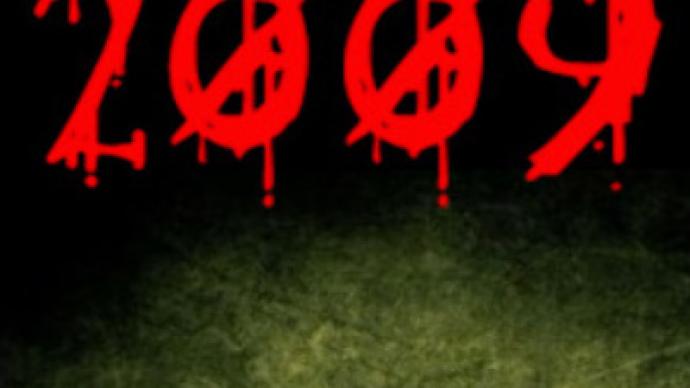Wednesday’s press review

This Wednesday, Russian newspapers make a 2009 forecast for the world, analyze Barack Obama’s team, interview a Belarusian MP and the President of South Ossetia, and outline the lessons to be learned from the economic crisis.
ROSSIYSKAYA GAZETA publishes an article by Nikolai Zlobin, the Director of Russian and Asian programs at the Washington-based World Security Institute. The academic sums up the year 2008 as one of the least successful years for the world economy and international politics, and predicts that due to the unprecedented scale of the current economic crisis, which, because of the process of globalization, is bound to become truly global, the year 2009 is going to be very difficult for every nation, every region, every family and every individual on the planet.
Zlobin writes that the West-to-East shift of the centres of influence and sources of new ideas and solutions for the global economy, of which many academics speak today, most probably will begin in earnest in 2009. It is unclear though, he writes, how a world ruled from the East is going to combat terrorism when modern terrorism itself is partly based on teachings and notions produced by the same East?
The Russian-American academic also says that the year 2008 saw the final failure of the system of international relations that had existed since WWII. He says, the reunification of Germany started the dismantling of that system while the recognition of Kosovo’s independence by the West and then the recognition of independent South Ossetia and Abkhazia by Russia, finished it off irreversibly. Which means, says the writer, that ‘we are entering the year 2009 in the total absence of a set of firm rules regulating international relations, and only the future will tell us if it is good or bad.’
NEZAVISIMAYA GAZETA says that in spite of his liberal-left election campaign rhetoric, Barack Obama is forming a team of administration executives with centrist or even slightly right-of-the-centre views. The paper writes that the only person in the whole team who professes change as the next administration’s strategy is Barack Obama himself, and that even he hasn’t said much on the matter since the election.
Meanwhile, for national security Obama chooses strong individuals with no known connections to his own supposed liberal left ideology. The economics team, says the paper, is composed of the associates of the Clinton-era Secretary of the Treasury, Robert Rubin who, paraphrasing Obama’s own joke, are all ‘much closer to Wall Street than to the Main Street.’
The paper says that if old faces mean old policies, then Barack Obama is starting off in the same direction where his predecessor was headed; however it is too early to make a judgment. In his media appearances the president-elect is still positioning himself as an agent of change, continues the paper, so it may be important for the Russian leadership to concentrate on an active, direct and personal dialogue with him.
VREMYA NOVOSTEI interviews the chairman of the International Relations Commission of the parliament of Belarus, Sergey Maskevich. Asked about plans to discuss the recognition of South Ossetia and Abkhazia, he says that he and his colleagues understand Russia’s motives for the recognition very well, and Belarus as Russia’s ally needs to consider the matter closely. However, he says, in its decision-making the parliament also has to reflect public opinion on the issue.
He adds that neither of the state organs of Belarus will discuss and make a decision on the matter independently from others. The MP also says that no decision is expected to be adopted before the New Year. Most probably, he says, it will be discussed early in 2009. He also says that while there is no utmost urgency in the issue, it still shouldn’t be delayed for too long.
KOMSOMOLSKAYA PRAVDA interviews South Ossetian president Eduard Kokoity who tells the paper how, when he was elected in 2001, he understood on the spot that the previous administration had been trying to drain the nation of all resources and finally put it on its knees before Georgia. He says, in those times even some Russian high officials who now declare their patriotism in the most pompous way, tried to persuade him to ‘join Georgia and forget Russia, which is going to fall apart anyway.’
Kokoity also tells the paper how in 2003 the Georgian president Saakashvili sent three emissaries to him to win his support with a bribe of 20.000.000 U.S. dollars. Kokoity says he sent them packing right away, with a polite refusal. He says a few weeks later it became known that the initial sum was 50 million U.S. dollars and the three emissaries had split 30 million between themselves while on their way to South Ossetia.
IZVESTIA publishes an op/ed article by its columnist Alexandr Livshitz who writes that the economic crisis, apart from inflicting damage on the economy also teaches us lessons in economics. He writes that, for instance, when we have to pour budget money into the economy to keep the bigger financial institutions and producing companies afloat, some investors can’t understand why Russia would use its huge currency reserves in such a way, and so they flee the Russian market. The columnist says when we want to build a Russian rouble zone for international trade, it is not isolationism – we are just protecting our markets from such light-headed investors with U.S. dollars in their pockets.
The author also says that Russia may need one more round of privatization – after the crisis, when the government could dispose of the accumulated assets of the businesses saved from bankruptcy. For the government, he writes, there’s no point in holding those assets: throughout Russia’s history the Tsar was always responsible for the safety, security and growth of the land, while the peasant was responsible for a good harvest on that land.
The columnist notes that the crisis, which has so far landed its strongest blow on the banking system, has also set a process in motion, in which the banking sphere is losing in the quantity but gaining in the quality and strength of the remaining banking institutions, and that cannot be bad.
The crisis has proven to be a good substance to clear the minds of those who were overindulging in financial liberties, continues the author, and adds: ‘Before the crisis I thought that the Russian proverb ‘When there’s no thunder in Heaven, man forgets the sign of the Cross’ is valid only in Russia, but it appears that it has a universal meaning.’
Evgeny Belenkiy, RT.














